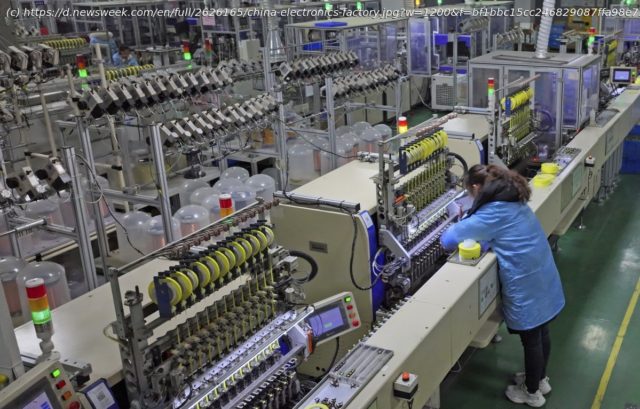In a Friday night update, the Trump administration spared computers, smartphones, and other electronic parts from his latest “reciprocal tariffs.”
President Donald Trump’s “reciprocal” tariffs, as of a Friday night update, spares smartphones, computers, and other electronic products that had been expected to face steep duties under sweeping new levies, particularly those targeting Chinese imports.
Newsweek has reached out to the trade division of the U.S. Customs and Border (CPB) Protection via email on Saturday.
Earlier this week, Trump’s “reciprocal” tariffs went into effect for several hours before he paused most of them for 90 days. Notably, he did not delay any tariffs on China and has remained firm in his stance against the country.
The U.S. and China remain in a tit-for-tat tariff war, with Trump hiking the 104 percent tariffs on China to 125 percent on Wednesday after Beijing hit back at the U.S. with an 84 percent additional levy earlier in the day. Trump’s total tariffs now stand at 145 percent on Chinese goods, while China has imposed a 125 percent tariff, dismissing Trump’s strategy as “a joke.”
China manufactures a significant share of electronics, serving as a production hub for many of the world’s—and America’s—largest technology companies. Firms including Apple, which assembles most iPhones in China, rely heavily on Chinese supply chains and production. The tariffs, ahead of the new exemptions, were expected to have a substantial impact on consumers of technology products. Baseline 10 percent tariffs are still expected to hit consumers across industries.
On Friday night, CBP published updated tariff guidelines that included a list of items exempt from what Trump refers to as “reciprocal” tariffs, with most of them paused for the next three months.
Home
United States
USA — Science Trump Exempts Phones, Computers From Reciprocal Tariffs: What to Know






